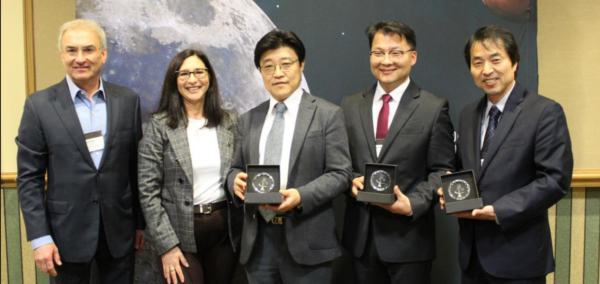A new agreement between the Center for Space Medicine at Baylor College of Medicine and the Korea National Institute of Health (KNIH) will permit new international scientific research and discovery collaboration in the field of space health.
Dr. Dorit Donoviel, associate professor in the Center for Space Medicine at Baylor and executive director of the Translational Research Institute for Space Health, stated, “As in space, there should be no borders or limits to scientific discovery that benefits humankind.”
We will work with the KNIH to foster meaningful dialogue to keep humans healthy in space and on Earth.”

Astronauts and space travelers require practical solutions to safeguard them against the numerous health risks associated with space exploration, such as the effects of space travel on the body and psyche.
Through this international partnership, researchers from both institutions will work across scientific disciplines, combine expertise, and share data in order to increase the collective understanding of how the human body adapts to space conditions.
This collaboration will result in the development of new health and performance safeguards, which could lead to significant health advancements for NASA’s impending crewed Artemis missions and future commercial spaceflights.
“Korea National Institute of Health is honored to become a partner with TRISH, an institute of excellence in space health,”.
“In collaboration with TRISH, KNIH will take the first step of a bold challenge and innovation for space health and medicine to strengthen research and development capacity and play a pivotal role in the development of core research and technology in Korea.”
The agreement that has been executed is a Memorandum of Understanding (MOU). Both parties agreed to develop fruitful areas of space health cooperation. The mental health issues associated with space travel, the challenges of food provision in deep space, the negative effects of space radiation, and the need to develop advanced in-suite medical care for long-duration space travel are of particular interest.
Further research in these areas could lead to improvements on Earth, including better mental health care, improved food supplies, radiation protection, and deployable medical instruments to aid remote communities.
“I look forward to expanding possibilities in partnership with our colleagues in the Republic of Korea, which brings us closer to health solutions that will help protect all future explorers,” Donoviel said.
TRISH is a NASA Human Research Program-supported catalyst for applied space health research that finances innovative, high-impact scientific studies and technologies to prepare astronauts for deep space exploration. Register for its monthly newsletter to learn more about TRISH and its future funding opportunities.

